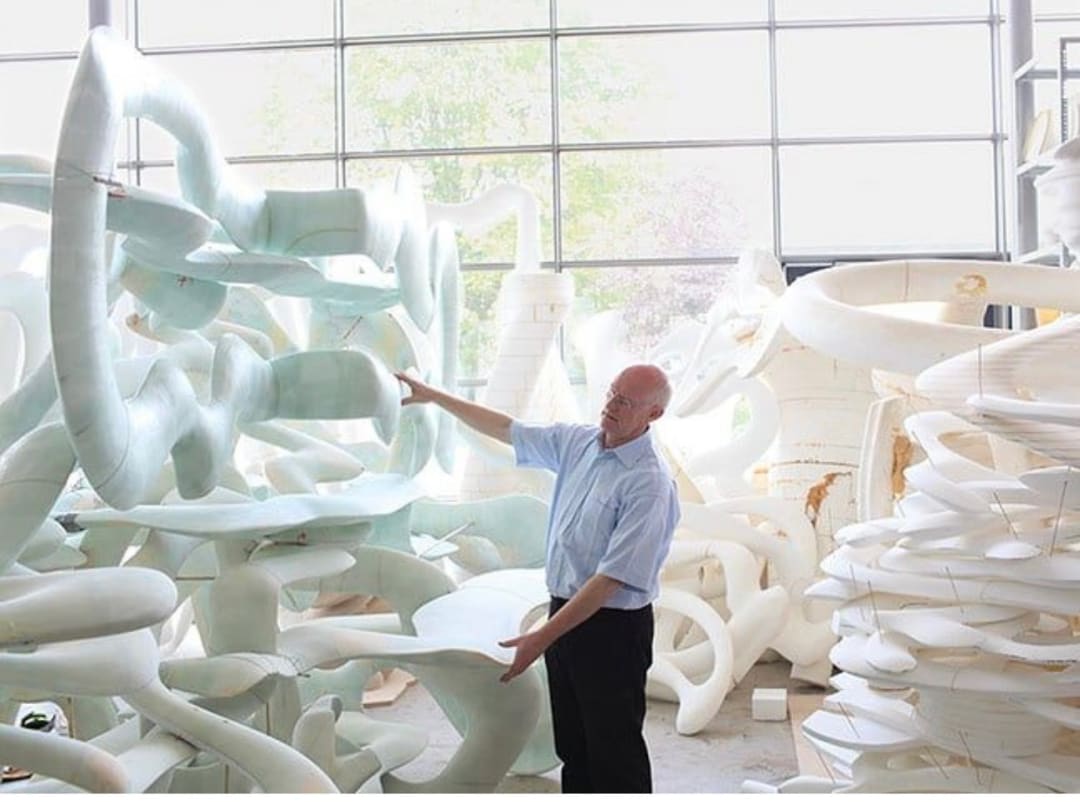Tony Cragg is a renowned British sculptor whose innovative works have earned him international acclaim for their exploration of form, material, and the dynamic relationship between the human body and the environment. Born in 1949 in Liverpool, Cragg initially studied at the Wimbledon School of Art before moving on to the Royal College of Art in London, where he honed his craft and developed his signature style. Throughout his career, Cragg has embraced a diverse range of materials, from traditional bronzes and marbles to more unconventional substances such as plastics and wood, demonstrating a masterful ability to manipulate form and texture.
Cragg’s sculptures often emphasize the organic, fluid nature of human experience, with a focus on the transformation of space and the interplay between solid and void. His works are distinguished by their intricate, layered structures and dynamic sense of movement, challenging the viewer to reconsider the boundaries of sculpture as a medium.
In 1988, Cragg won the prestigious Turner Prize, solidifying his position as one of the most influential sculptors of his generation. His public commissions are displayed worldwide, with notable works in major institutions like the Tate Gallery in London, the Pompidou Centre in Paris, and the Hirshhorn Museum in Washington, D.C. Cragg's contributions to contemporary art have been celebrated in numerous solo exhibitions and retrospectives, and he continues to push the boundaries of sculpture in both public and private spheres.
